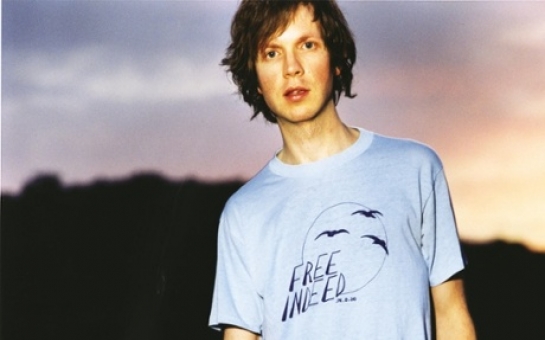Follow us !
Top five Generation X anthems
Culture
22:30 | 07.03.2014

Top five Generation X anthems
“Slacker my ass! I never had any slack. I was working a $4-an-hour job trying to stay alive. That slacker stuff is for people who have the time to be depressed about everything.”That’s what Beck told Rolling Stone in 1994, when asked about the tag that had followed him since his single, Loser, brought him to mainstream attention. With its odd mix of deadbeat irony, bluesy slide guitar and shuffling hip hop drum breaks, the single – which peaked at No 15 on the UK charts 20 years ago this month – was hailed as an instant slacker-rock anthem, although it sounded more like a send-up of the above.Whatever the intent, the song arrived at a transitional moment for rock. Less than a month later, Kurt Cobain would be dead, and Oasis would have begun their journey towards ubiquity with Supersonic. In some ways, Loser works as both swan-song and death knell for Generation X – that semi-mythical swath of the western populace who, coming of age in the late-80s, were defined by their alienation from mass culture, cynicism and alleged fondness for slacking.Loser anticipated the increasingly pastiche-heavy sound of pop to come, but what about the era’s other seminal musical offerings? Here are five defining tracks of the Gen X era and its pejorative sibling, the slacker generation.Sonic Youth, Teen Age Riot (1988)In helping land a bunch of one-time white-noise terrorists a major label deal, the success of Sonic Youth’s 1988 album Daydream Nation set underground music in the US on a collision course with the mainstream. The record’s opening track, Teen Age Riot, was an incendiary call to arms that seemed to divine the same currents of disaffection that would later feed into grunge (apathy, media-overload, the desire to connect). It was supposedly inspired by a fantasy where Dinosaur Jr frontman J Mascis was president, which leads us neatly on to …Dinosaur Jr, Freak Scene (September 1988)A zen master of slackerdom, J Mascis is almost as famous for his catatonic interview style as he is for his unmistakable fretwork. That rare axeman beloved of indie and rock kids alike, his sloppy, virtuosic playing and croaky vocals were a big influence on grunge (Kurt Cobain famously asked him to join Nirvana in 1989) and latter-day slacker royalty such as Kurt Vile. Freak Scene, an early song often rumoured to be about Mascis’ dysfunctional relationship with his then-bandmate Lou Barlow, is one of the band’s best.Superchunk, Slack Motherfucker (1989)Originally used to describe draft dodgers in the US during the first world war, the term “slacker”, as it is currently understood, was popularised by the first Back to the Future film (“McFly, you’re a slacker!”). Over the next decade, the tag became linked to indie filmmakers including Richard Linklater and Kevin Smith, and bands such as Pavement and Guided by Voices. Another early use of the term came from Superchunk, who, in addition to founding slacker-rock powerhouse Merge Records, released Slack Motherfucker, a scrappy gem that sees a disgruntled employee accuse his boss of slacking off on the job in the strongest possible termsRadiohead, Creep (September 1992; re-released 1993)Sneer all you like at the back, but Thom Yorke and company’s early-career albatross – affectionately rechristened as Crap by the band – is an evergreen classic of alienation, self-loathing and despair. Brilliantly, the bit everyone remembers from the song (the “CHUKKA … CHUKKA” guitar stabs before the chorus) was apparently intended as an act of sabotage by Jonny Greenwood, who hated it. Which is, like, a totally Gen X thing to do … or whatever.Pavement, Cut Your Hair (February 1994)A defining slacker anthem – sardonic, self-aware, resentful of capitalist dogma as represented by cynical record labels (“Advertising looks and chops a must!/ No big hair”). What’s striking listening back to Stephen Malkmus’ celebrated “fuck you” to the music biz is how carefully worn its unaffected style seems, marking a tipping point from the angst of the early-90s to the more arch style of the decade’s middle years.(theguardian.com)ANN.Az










